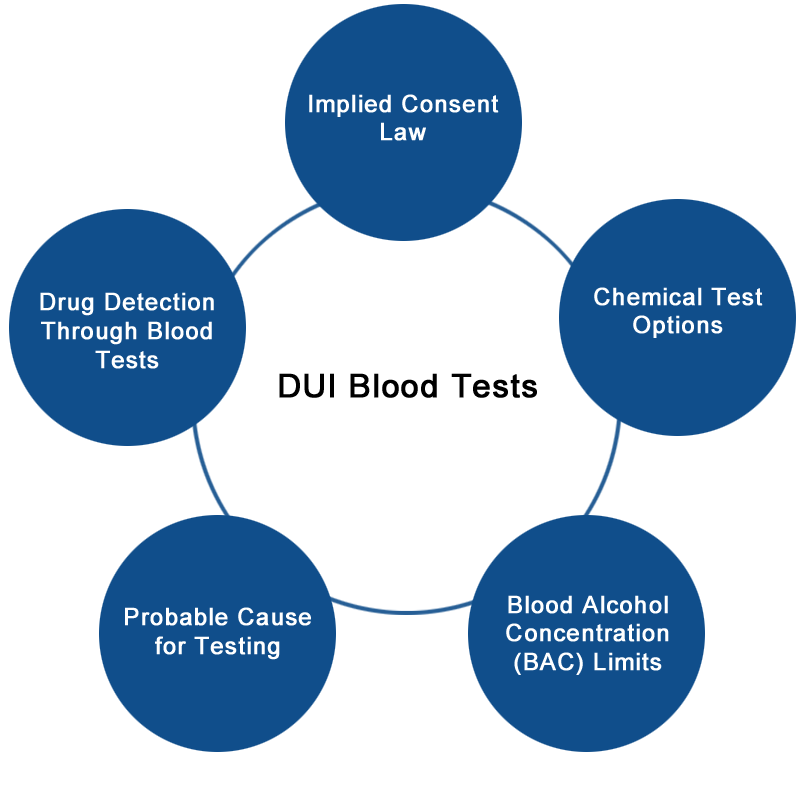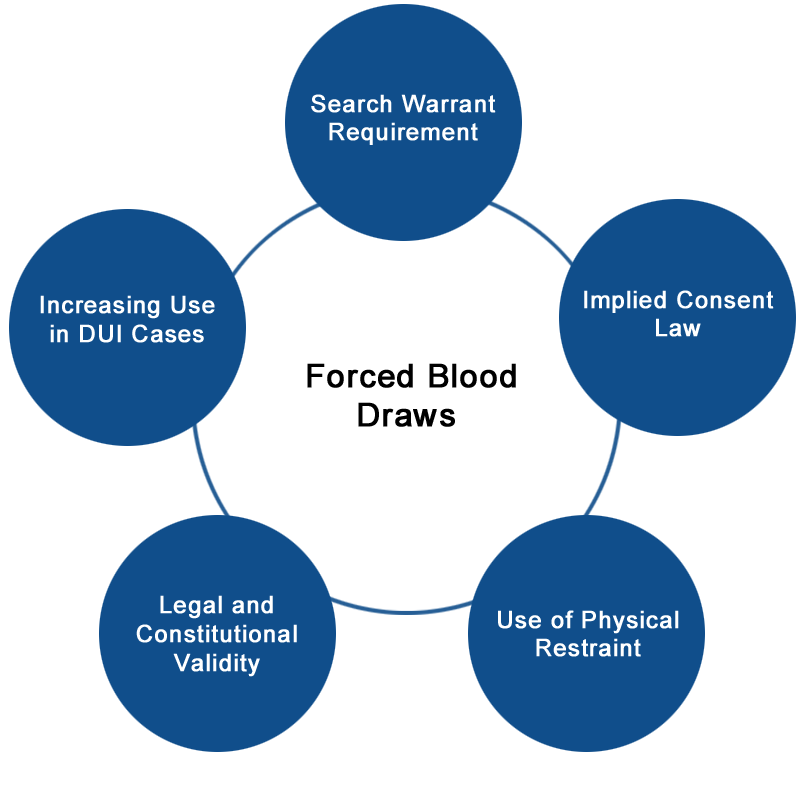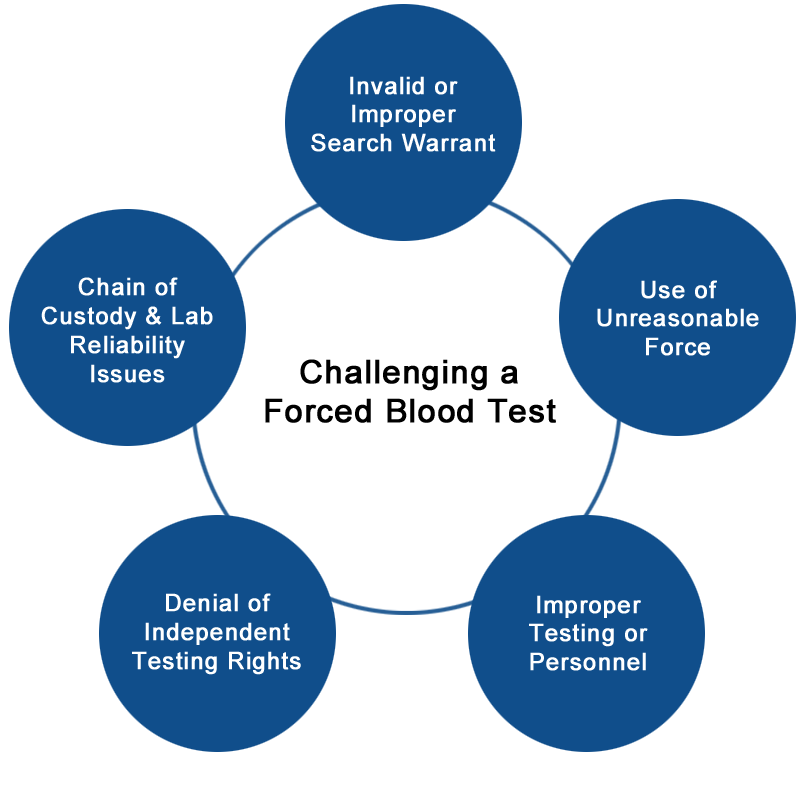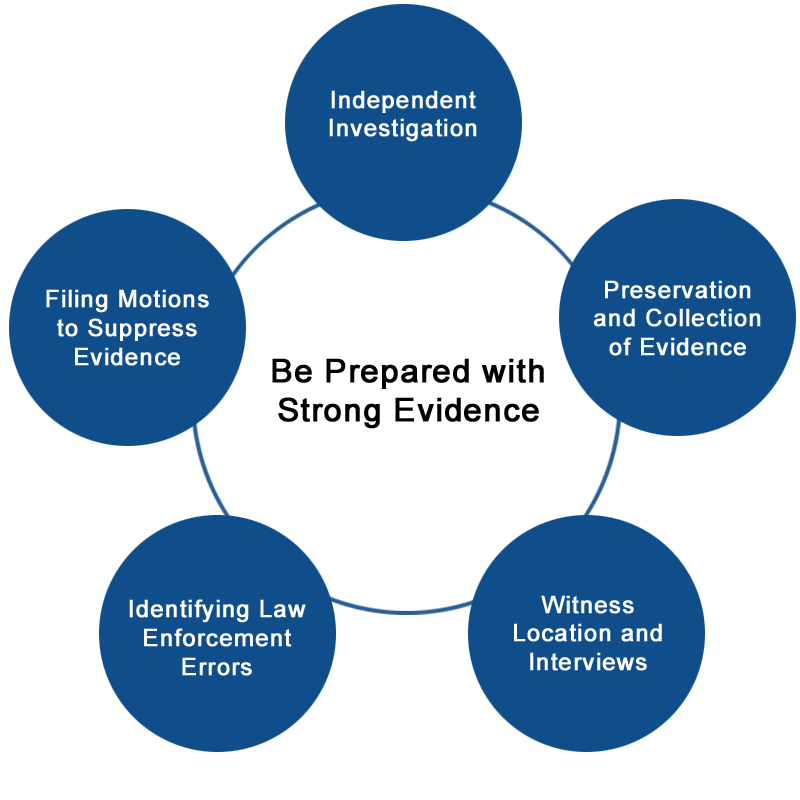
Under Georgia law, if a police officer has a valid reason to believe that someone was driving or in control of a moving vehicle while under the influence of alcohol or drugs, and the officer arrests that person for DUI, then a chemical test, such as a breath, blood, or urine test, is the suggested next action.
You indirectly agreed to these tests when you registered for a driver’s license in Georgia. “Implied” means something that isn’t directly stated but is understood to be agreed to. When you apply for a driver’s license in Georgia, you automatically (implicitly) agree to follow certain rules, even if you don’t say so out loud. One of those rules is that the State of Georgia gives you the privilege to drive on its roads only if you agree to take a state-administered chemical test such as a breath, blood, or urine test, if you are suspected of driving under the influence of alcohol or drugs.
In Georgia, a DUI blood test is used to measure a driver’s blood alcohol concentration (BAC) and can also detect the presence of drugs. The legal BAC limit is 0.08% for drivers age 21 and older. However, Georgia enforces stricter limits for certain groups:
- Commercial drivers (CDL holders): 0.04%
- Drivers under age 21: 0.02% (zero tolerance)
Suppose an officer suspects drug or alcohol use, whether from prescription medication, over-the-counter drugs, or illegal substances, they can establish probable cause. This means they have a reasonable basis to believe you are impaired. Probable cause can be based on observations such as swerving, erratic driving, slurred speech, bloodshot eyes, the smell of alcohol or marijuana, or failing field sobriety tests. Once probable cause is established, the officer can make a DUI arrest and, more recently, has been asking citizens for a blood test.
Refusing the Blood Test Consequences
Refusing a breath, blood, or urine test in Georgia after a DUI arrest triggers an automatic license suspension for up to one year under the state’s implied consent law. This suspension applies even if you are not ultimately convicted of DUI. The refusal can also be used against you in court as evidence implying guilt. However, you have the right to challenge the suspension by requesting an administrative license hearing. This allows you to assert that you disagree with the arrest and believe there may have been errors, and therefore your driving privileges should be immediately restored.
Getting Your Driver’s License Back by Appealing Your Suspension
If you are arrested for DUI in Georgia and refuse testing, your license may be suspended under the state’s implied consent law. To challenge this suspension and try to regain your driving privileges, you must request an Administrative License Suspension (ALS) hearing within 30 days of your arrest.
At the hearing, you can contest the legality of the traffic stop, the arrest, or the request for chemical testing. Winning the hearing can prevent your license from being suspended before your DUI case even reaches court.
The ALS hearing also gives your attorney the opportunity to cross-examine the arresting officer and gather valuable evidence that may later strengthen your case. There is a lot to gain by appealing your driver’s license at this hearing and not much to lose.

Forced Blood Draws Explained
If you are arrested for DUI in Georgia and refuse to take a breath, blood, or urine test, the officer can ask a judge for a search warrant. If the judge approves it, the officer is legally allowed to have your blood drawn, even if you do not agree. This is called a forced blood draw. It means medical staff may take a sample of your blood, sometimes using physical restraint if necessary, to test for alcohol or drugs in your system.
This is allowed under Georgia’s implied consent law. That law says when you drive in Georgia, you agree in advance to chemical testing if an officer believes you are driving under the influence. Officers can also request search warrants to collect evidence, including blood samples, when they believe it is necessary.
In the past, forced blood draws were mostly used in serious cases, such as crashes involving injuries or deaths. More recently, they have become more common in standard DUI cases as a way to collect stronger evidence to secure convictions.
Georgia courts have said that a forced blood draw is legal if there is a valid warrant and the procedure is done safely and correctly by medical professionals. It does not violate your constitutional rights when these conditions are met.
Additional Sanctions for Refusing the Blood Test
If a driver refuses to comply with a judge’s search warrant for a blood test, they could be charged with obstruction. Obstruction generally means interfering with or resisting a police officer while they are performing their duties. It is a separate criminal offense that can make the situation even more serious.
In many cases, officers will still issue a 1205 form. This is an official notice that starts the process to suspend your driver’s license for one year simply for refusing the test. Even if the state obtains your blood through a warrant, it still counts as a refusal. This means the state gets the evidence they want, and you lose your license, with no option for a hardship permit to drive to work or school.
Independent Blood Test Rights in Georgia
In Georgia, you have the right to get your own chemical test to double-check the results from the state’s test. After taking the official breath, blood, or urine test, you may request an independent test from a lab of your choice. The officer must make a reasonable effort to help you get that test.
If the officer refuses or fails to give you the chance to get your own test, the results from the state’s test may not be allowed in court. This is because you were denied the opportunity to confirm or challenge the accuracy of those results.

Challenging a Forced Blood Test in Georgia DUI Cases
There are many ways to challenge a forced blood test in a DUI case. Below are just a few examples of defenses that may apply, but every case is unique. Your case may have weaknesses, just like many of the clients we have defended who later achieved favorable outcomes.
1. Lack of a Valid Search Warrant
One possible defense is that the officer did not obtain a valid search warrant. If there was no properly signed warrant in place before the blood was taken, the evidence may be inadmissible in court. The Fourth Amendment protects against unlawful searches and seizures. Even if a warrant was issued, it can still be challenged if it was based on false, misleading, or insufficient information. For example, the officer’s affidavit might not have clearly established probable cause.
A warrant must also be carried out correctly. If the blood draw was not done within the required time frame or did not follow proper procedures, the results may be excluded as evidence.
2. Use of Unreasonable Force
Another issue is the use of excessive or unreasonable force. If officers used unnecessary physical force to obtain the blood sample, that could violate your constitutional rights.
3. Unqualified Personnel Performing the Blood Draw
Georgia law requires that blood draws be performed by licensed medical professionals. If someone unqualified performed the draw, the test results may not be valid and could be challenged in court.
4. Denial of Independent Chemical Testing
You have the right to request your own independent chemical test at your own expense. Officers are required to make a reasonable effort to help you obtain it. If they fail to do so, the results from the state’s test may be thrown out.
5. Chain of Custody Errors
Chain of custody problems are another area that can be challenged. Any mistake in how the blood sample was labeled, transported, or stored can raise doubts about the reliability of the results. Contamination, expired equipment, or lab errors during testing can also work in your favor.
6. Lab Reliability and Testing Procedures
The lab’s accuracy and reliability can be questioned. This includes whether proper testing procedures were followed, whether the equipment was correctly calibrated, whether the analyst was properly trained and certified, and whether the lab has a record of past mistakes or failed audits.
The Importance of Immediate Action
These are just a few of the many legal strategies that may apply to your case. The key is to act quickly and strategically. An experienced DUI defense attorney can review the details of your arrest, identify any weaknesses in the state’s case, and work to keep unreliable or unlawfully obtained evidence out of court.

The Best Preparation and Strongest Evidence Lead to the Best Results
When it comes to winning in the courtroom, the side that is better prepared and knows more about the case is often the one that wins. The attorney who puts in more work, builds a stronger relationship with their client, and has a clear understanding of the facts has a greater chance of success.
It all starts with collecting evidence. After an arrest, your attorney should immediately begin an independent investigation. This includes preserving crucial evidence, tracking down witnesses, and gathering everything from police reports and court documents to test results, bodycam footage, and surveillance video. Visiting the scene to retrace events can also reveal important details.
A thorough approach to evidence collection helps uncover weaknesses in the prosecution’s case and errors made by law enforcement. By identifying these flaws, your attorney can challenge procedures and file motions to suppress evidence, potentially changing the trajectory of your case.
Schedule Your Free Legal Case Evaluation
At Zeliff | Watson, we provide free, no-obligation legal case evaluations so you can speak directly with our experienced DUI defense team and gain a clearer understanding of your situation. Many people who attend these consultations leave feeling more at ease and sleep better that night, having uncovered defenses they may not have considered before.
During your consultation, you will have the opportunity to explain the details of your case and ask any questions you may have. After reviewing the facts, we begin crafting a strategy tailored to your specific circumstances with the goal of achieving the best possible outcome. This often results in DUI charges being dismissed, reduced, or even acquitted in court.
To learn more, use the online form below to get started.
A Simple Process to Getting Started

Schedule a Free Case Evaluation
Schedule a free, no-obligation, and confidential case consultation in person, online, or over the phone. This will help you understand how your case can be challenged, potentially leading to a reduction, dismissal, or acquittal of your charges. Click here to schedule your case evaluation.

Meet Our Defense Team and Conduct a Case Evaluation
During your free case evaluation, you’ll have the opportunity to ask questions, receive answers and legal guidance, and collaborate with our attorneys to better understand your side of the story, gather evidence, and devise a strategy to achieve the best possible outcome for your pending criminal charges.

Start Defending Your Case
After your free case evaluation, Zeliff & Watson will assist in preserving evidence and safeguarding your rights, ensuring your protection throughout the process. The defense team will also provide a proposed fee to represent your case, with the goal of achieving the best possible outcome.

